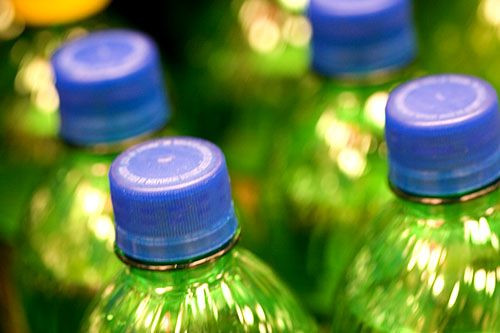Carbonated Drinks Associated With A High Risk Of Out-Of-Hospital Cardiac Arrest

Popping open a can of soda is pretty standard behavior for a lot of us. Yes, we know it's chock full of sugar and calories, and the artificially sweetened ones have been accused of being linked to everything from depression to metabolic syndrome. Sometimes you’re just craving one of the fizzy, refreshing beverages, but a new study suggests yet another reason we should be ditching the soft drinks.
According to research presented at the European Society of Cardiology Conference earlier this month, carbonated beverages are associated with out-of-hospital cardiac arrests of cardiac origin.
"Some epidemiologic studies have shown a positive correlation between the consumption of soft drinks and the incidence of cardiovascular disease (CVD) and stroke, while other reports have demonstrated that the intake of green tea and coffee reduced the risk and mortality of CVD," said principal investigator Professor Keijiro Saku, Dean and professor of cardiology at Fukuoka University in Japan.
Saku says that while sodas have been linked to an increase in metabolic syndrome and CVD, this study was the first to make an association between drinking large amounts of carbonated beverages and out-of-hospital cardiac arrests (OHCA) of cardiac origin.
The study involved tracking the various beverage consumption of almost 800,000 patients between the years of 2005 and 2011. The analysis focused on cases of OHCA that received resuscitation, 55.4 percent of which were of cardiac origin, and 44.7 percent were of non-cardiac origin. Researchers compared the age-adjusted incidence of OHCAs to the consumption of different beverages, and found that expenditures on carbonated beverages were significantly associated with OHCAs of cardiac, but not non-cardiac origin.
Expenditures on other beverages, including green tea, black tea, coffee, cocoa, milk, mineral water, and fruit and vegetable juice were not significantly linked to OHCAs of cardiac origin. The data on beverage consumption was obtained from the Ministry of Health, Labour and Welfare of Japan.
"Carbonated beverage consumption was significantly and positively associated with OHCAs of cardiac origin in Japan, indicating that beverage habits may have an impact on fatal CVD," said Professor Saku. "The acid in carbonated beverages might play an important role in this association."
Saku also said that the team’s data is based on expenditure, and that the association with OHCA is not casual. The findings do, however, indicate that limiting consumption of carbonated beverages could benefit health.
Source: Saku, K. Carbonated beverages are associated with out-of-hospital cardiac arrests of cardiac origin: from the All-Japan Utstein Registry. European Society of Cardiology. 2015.



























